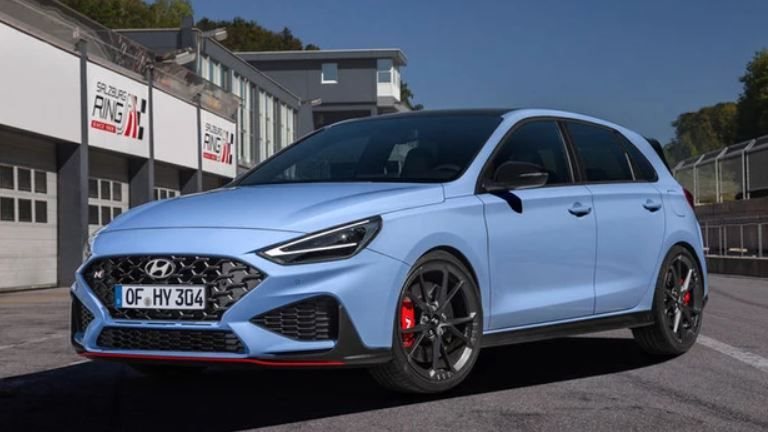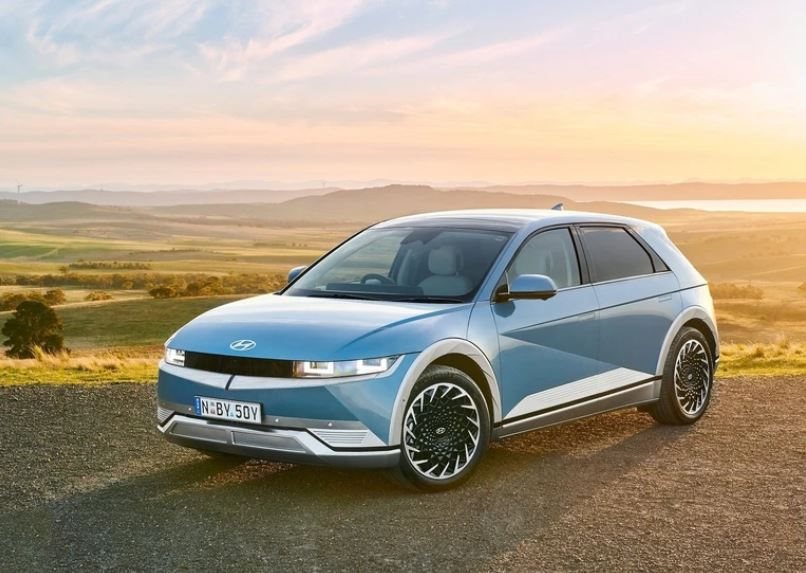
With global electronics and semiconductor supply chains remaining fractured, no company had a great first half of 2022. It was a case of Hyundai’s decline being less than those of its rivals. But industry analysts and car fans won’t be surprised to learn that Hyundai is now the world’s third-most powerful automotive entity.
There are good reasons for Hyundai’s lofty ranking, many of which are related to Korea’s industrial policy and high-level technical education. But Hyundai’s success also challenges the notion of what makes a great car company… and which products are perceived to guarantee success.

Hyundai’s third place in the global sales rankings didn’t happen by accident – it’s symbolic of Korea’s broader industrial success. And technical expertise. During the early 1990s, when Japanese car companies were at their most powerful, and European brands were in decline, Korea quietly reinforced its car industry.
It prioritised engineering- and English literacy, allowing technical experts to travel globally and absorb the latest trends without misinterpretation. You can’t build a great car without inspired designers and engineers and, with Korea producing a flood of brilliant engineering and industrial design graduates annually (for decades), Hyundai has benefitted from outstanding human resources.
With technical excellence in automotive engineering, there is no such thing as coincidence. Tesla dominates because it recruited the best people from the world’s greatest concentration of software and electronic engineering excellence, near its headquarters, in Northern California. Much the same is true for Mercedes-Benz and Porsche. Both are domiciled in Stuttgart, which is also the location of Bosch – for decades, the world’s automotive technology supplier of choice.
Hyundai can leverage the impressive Korean domestic supply of electronics and battery design specialists. It can access the same networks that LG and Samsung do, which affords it an enormous advantage in aspects of automotive engineering (areas where many legacy car companies are struggling) – powertrain electrification, software integration, general digitisation and user interfacing.

Of all the global car companies, Hyundai has a great advantage by virtue of geography. Korea’s LG is the world’s third-largest battery supplier. Whereas European and American car companies are desperately trying to negotiate battery supply agreements with LG, powertrain teams at Hyundai can use their university networks to schedule a meeting and get the business done without language or cultural barriers.
Asia controls the global supply of sophisticated high-energy batteries and, for Hyundai, it’s comparatively easy to link into that source of energy packs for its electric vehicles. Established technical relationships and partnerships between Korean companies also make it easier for Hyundai to plan and futureproof its electric vehicle strategy.
And it’s not only core battery chemistry. Hyundai’s executive and risk management consultants have been terrifically mindful of future technologies.
Korea is one of the world’s most technologically advanced societies. Throughout the country’s population, people are thoroughly versed in the latest digital technologies. Being an early adopter in Korea is not a thing, because it seems everyone in that country is “a tech geek”. And that shows in the way that Hyundai senior managers, who are in their late 50s, view technology – as an opportunity, not a threat.

Boston Dynamics is a renowned American robotics company famed for its amazingly capable robots (Atlas and Sport) that can perform superhuman and canine-like movements.
In June, Hyundai announced that it had acquired Boston Dynamics. This purchase secured the Korean car company some of the world’s best mechatronic engineers, crucial in designing and perfecting production lines that create batteries and electric motors.
Toyota has the most balanced product portfolio of the top three global car companies, with many SUVs and bakkies. VW’s bakkie business is negligible and Hyundai’s is marginal at the moment, with only the Santa Fe-based Santa Cruz.
The promise is that Hyundai will expand its bakkie business with a ladder-frame double-cab, and that should entrench its market position. Toyota cannot gain too much more market share with its bakkie business. Why? The diminishing return curve of being a global bakkie leader, which is already present in virtually all markets.
VW’s Amarok volumes will probably be similar to what they have been when the new version arrives. Hyundai has the most potential for organic growth. How? It can introduce more bakkie models and conquer customers from rival brands, without cannibalising within its own product portfolio
It is amazing that Hyundai has achieved such tremendous success without a scaled bakkie or ultra-luxury car business. Genesis is Hyundai’s attempt to create a Lexus-like luxury sub-brand, and it trades fairly well in North America, but it has hardly been a focus for the Korean automotive giant.

If you take a longitudinal view of the global car business, Hyundai is unique. Many of the traditional risks and constraints that bedevil the evolution of most car companies are absent with Hyundai. It doesn’t have the history of European legacy car companies, which renders it less constrained by tradition regarding design and brand positioning. It also never became dependent on the large-capacity engine profits that American brands rely on with their pick-up truck and SUVs.
And then there is the question of Korean cool. By association, Hyundai benefits from the global cachet of anything Korean (consider how K-pop has become a global phenomenon).
Much as all German car companies have, for decades, leveraged the reputation of German technical excellence in their product marketing, Korea could do the same. Or perhaps it already is, using the subconscious bias that is soft-wired to buyers who either have a Korean smartphone in their hand… or a Korean appliance in their home.
This article was originally published on Cars.co.za...

Cars.co.za is a leading online automotive retail portal that lists more than 70 000 vehicles stocked by hundreds of dealers countrywide, as well as the top-ranked branded SA YouTube channel. In 2015, Cars.co.za repositioned itself as a consumer champion by optimising its editorial content for the purposes of engaging and empowering its users. The Cars.co.za Ownership Satisfaction Survey, in association with Lightstone Consumer, and the Cars.co.za Consumer Awards – powered by WesBank, underlines the company’s objective to be the most comprehensive resource to South African vehicle buyers.
Go to: http://www.cars.co.za